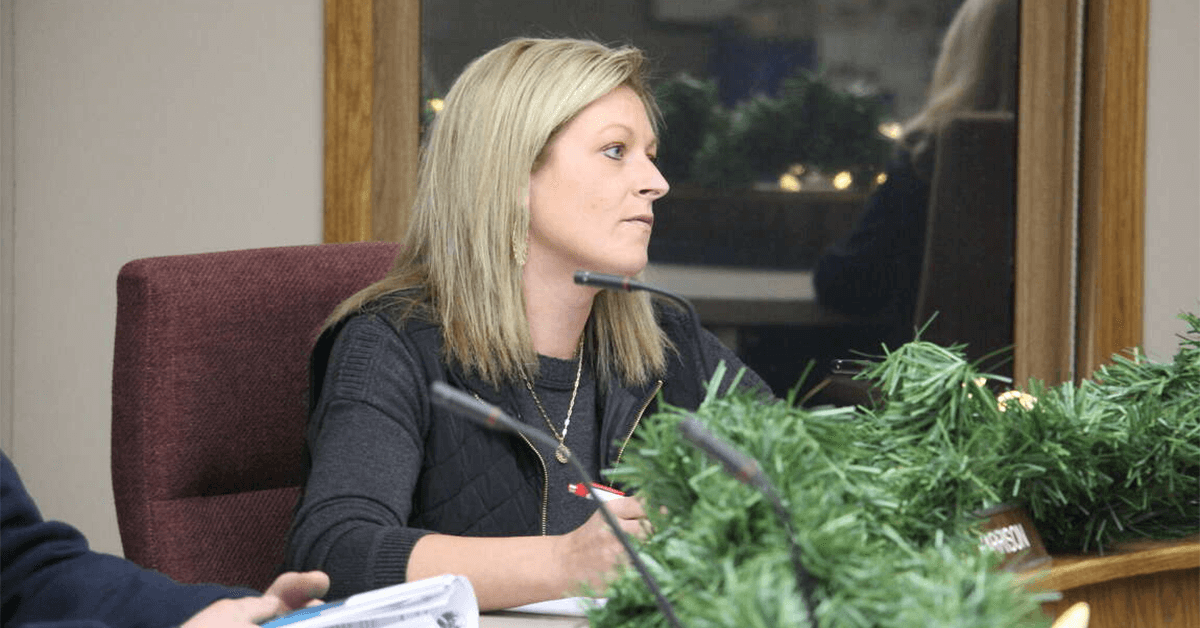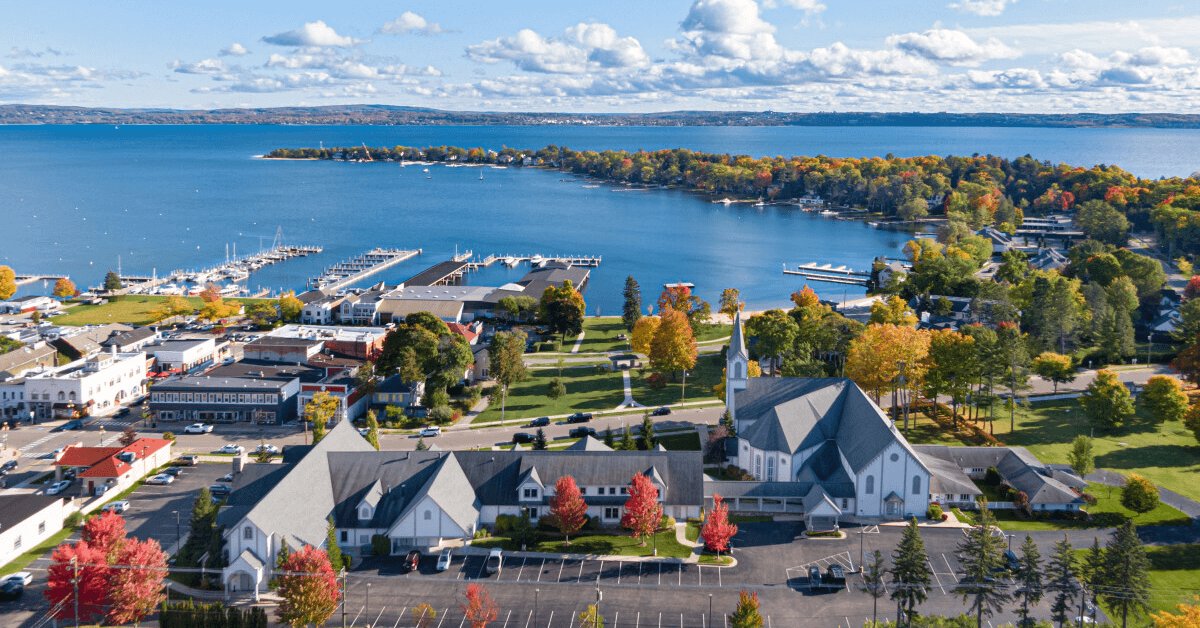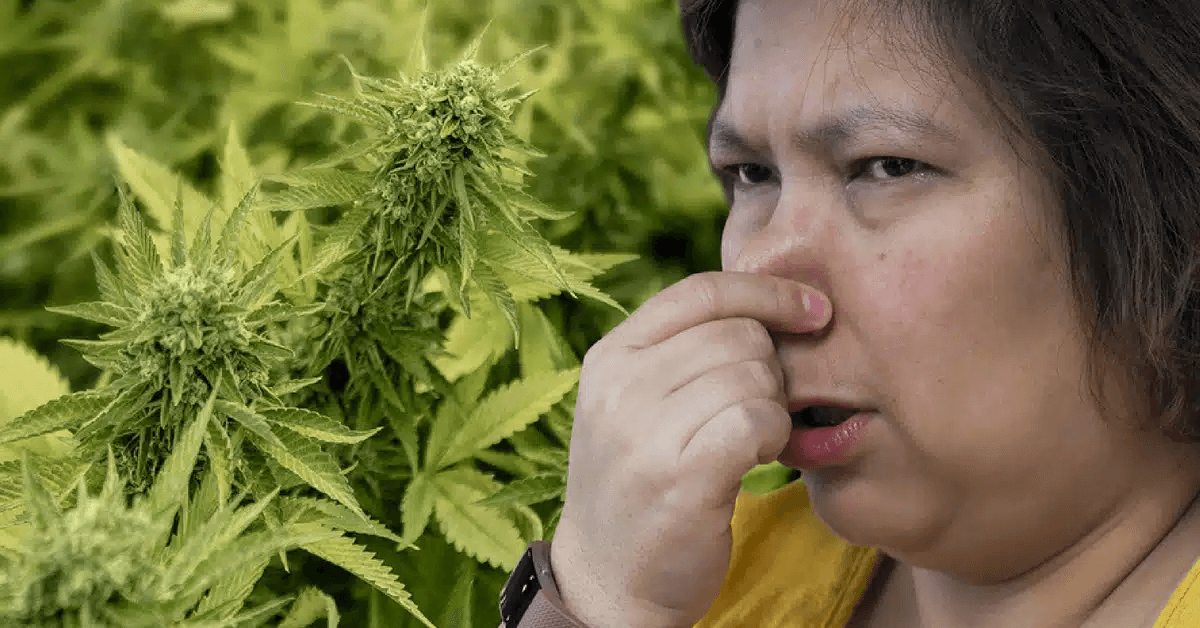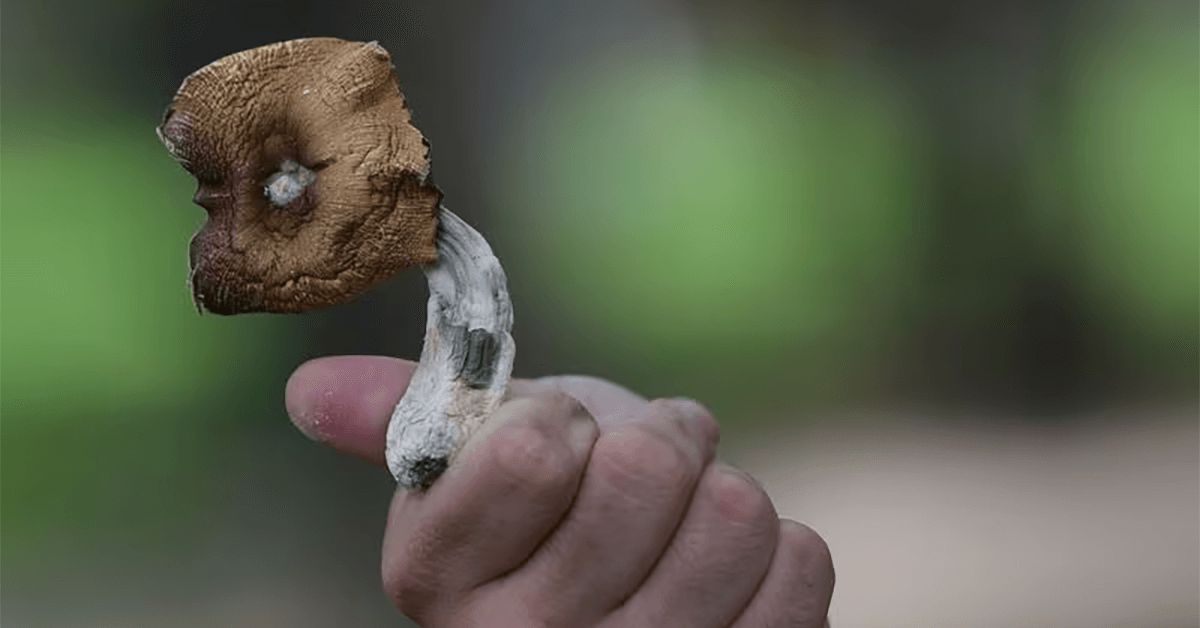Royal Oak Updates Cannabis Ordinance to Clarify Event Regulations

In a recent move to harmonize existing regulations, the Royal Oak City Commission has amended the city's marijuana ordinance, particularly focusing on the use of cannabis at special events. This change was prompted by the precedent set at last year's Arts, Beats and Eats festival, where the House of Dank was granted a special permit to operate a cannabis consumption and sales area. This marked the first instance of such a permit being issued in Royal Oak.
The amendment, unanimously voted in by the commissioners, was primarily aimed at resolving inconsistencies between the city's marijuana licensing ordinance and its zoning law. As explained by City Attorney Niccolas Grochowski, the alteration did not introduce new regulations but rather aligned the existing ones. This clarification was necessary, as the original ordinance could be interpreted as prohibiting the city from issuing special licenses for temporary marijuana events, despite the zoning ordinance explicitly allowing such permits.
Mayor Michael Fournier highlighted the need for these changes, pointing out previous confusions regarding the language in the marijuana and zoning ordinances. The amendment now clearly states that smoking or using marijuana is not prohibited at temporary marijuana events, provided they have been granted a permit by the City Commission.
This step is part of Royal Oak's broader journey to integrate recreational marijuana use and sales within the city, following Michigan's state-wide legalization in November 2018. Royal Oak, where 69 percent of voters supported the legalization, has been developing and refining its cannabis-related ordinances over the past few years, encompassing various aspects of commercial cannabis operations.
The decision to amend the ordinance reflects the city's ongoing efforts to adapt to the evolving landscape of marijuana use and regulation, balancing legal compliance with the preferences expressed by its residents.
Addressing Community Concerns: Lapeer Imposes Moratorium on Marijuana Businesses

Lapeer, Michigan, has recently imposed a six-month moratorium on new marijuana business applications. This decision, effective immediately, was made during the City Commission meeting on Tuesday, following a recommendation by City Manager Mike Womack. The pause is intended to allow time for revising local ordinances concerning zoning and the enforcement of violations.
In 2018, Lapeer authorized six marijuana dispensaries for adults 21 and older to purchase both medical and recreational marijuana products. However, the city did not set a limit on the number of marijuana cultivation and processing businesses, leading to the current operation of seven such facilities.
The move comes in response to persistent complaints from residents, neighboring businesses, and visitors about the pervasive marijuana odor emanating from several grow facilities, notably the SDRK Grow LLC facility, previously the Lapeer Grain Co. site.
These concerns were echoed by the Lapeer Planning Commission, which recently urged the City Commission to reassess its ordinances. They highlighted the problematic location of marijuana businesses, particularly their proximity to other commercial entities. Most of these businesses are concentrated east of Court Street on Genesee Street/Imlay City Road and on Saginaw and Court streets south of the Canadian National Railroad tracks.
The idea of capping the number of cultivation operations in Lapeer was raised at the City Commission meeting. Commissioner Stefan Brady suggested aligning the number of grow facilities with the number of dispensaries, proposing a limit of six. This suggestion is yet to be formally considered or adopted.
In the meantime, efforts to address the odor issue are underway. Andy Shango, owner of the SDRK grow facility, is actively working on solutions. His facility, which received its permanent occupancy permit last fall, is collaborating with Kapala Heating & Air Conditioning to repair air leaks in large filtration equipment outside its two 6,000-square-foot grow operations. Shango has invested over $8 million in the site, including building renovations and equipment, and plans to spend approximately $1 million on a backup generator system. He emphasizes his commitment to being a responsible community member and resolving the odor issue.
The City has yet to issue citations for the odor problem, preferring to give businesses the opportunity to address the issue voluntarily. City Manager Womack highlighted the importance of working collaboratively with businesses to find solutions rather than rushing to punitive measures. However, he noted that some marijuana businesses might not be taking necessary steps to control the odor, and the City is prepared to enforce laws if required.
Lapeer's ordinances, particularly Ordinance 69.5, stipulate that operations should not cause nuisances like odors detectable beyond property boundaries. The definition of a nuisance in the zoning ordinance covers a range of disturbances, including odors, and the City is obligated to ensure compliance.
Operation of an authorized establishment shall not, either directly or indirectly, cause or create any noise, dust, vibration, glare, fumes or odors constituting a nuisance and also detectable to human senses beyond the boundaries of the property on which the facility is operated.
This development reflects Lapeer's ongoing efforts to balance the growth of its marijuana industry with community standards and concerns.
First Draft of Recreational Marijuana Ordinance Presented in Bad Axe

In a recent development at the Bad Axe City Council meeting on January 16th, City Manager Rebecca Bachman presented the first draft of the recreational marijuana ordinance. While the ordinance was not initially listed on the meeting's agenda due to timing constraints, it was nonetheless shared with council members for review and discussion during the final board comments.
Bachman explained the absence of the ordinance from the agenda, stating, "I did not get it in time to put it on this agenda as it would not have given you enough time to look at it. It will be on the very next meeting, and now you have plenty of time to look through it." This draft, prepared by the city attorneys, is slated for a detailed discussion at the council's next meeting on February 5th.
The forthcoming meeting will primarily focus on deliberating the contents of the ordinance, providing council members an opportunity to propose amendments. Bachman highlighted that the current draft primarily addresses operational regulations, leaving the zoning aspects for future discussions.
Should the council find no significant need for amendments, the ordinance could potentially be voted on as early as the February 5th meeting. Following council approval, the ordinance would then be forwarded to the Bad Axe Planning Commission to establish zoning regulations for marijuana facilities.
Despite a slight delay, Bachman reassured that the process is progressing smoothly and remains on track with the projected four- to six-month timeline for final approval. She expressed optimism about the ordinance's approval, which would allow interested parties to begin applying for licenses.
Bad Axe Police Chief Shawn Webber, in a previous report, noted the economic benefits of such facilities. Specifically, he mentioned that two types of recreational facilities, namely 'retailers' and 'micro-businesses,' could generate substantial revenue for the city. Based on data from 2022-2023, the city anticipates an average revenue of $51,841 per license, a figure that has risen since the legalization of recreational marijuana in Michigan.
Recreational Marijuana Proposal Sparks Discussion in Harbor Springs City Council

In a recent city council meeting in Harbor Springs, Michigan, a significant topic of discussion emerged regarding the potential introduction of a recreational marijuana dispensary in the city. City Manager Victor Sinadinoski briefed the council on a letter from Ypsilanti attorney Anderson Grandstaff, who is advocating on behalf of an unnamed client for a citizen's ballot initiative to allow a recreational marijuana outlet in Harbor Springs.
The attorney's approach involves a proposed ordinance that would permit a single marijuana retail establishment within the city, subject to annual license renewal. This initiative would involve a detailed application process, including a scoring system for selecting a licensee, an application fee cap of $4,900, a required distance of at least 1,000 feet from schools, and the consideration of a community benefits program to support individuals adversely affected by past marijuana laws.
Currently, Harbor Springs City Code explicitly prohibits the operation of any marijuana establishments within its limits. To place this ordinance on the ballot, proponents would need to gather signatures from 25% of the city's eligible voters.
During the public comment section of the meeting, several residents, including Allison Larson, expressed opposition to the idea. Larson emphasized the availability of marijuana in nearby Petoskey and expressed concerns about the potential negative impact on Harbor Springs' community quality. She also noted that similar efforts by Grandstaff had been initiated in other Michigan towns like Coldwater and Howell.
Mayor Matthew Bugera acknowledged that the only immediate advantage of such an ordinance would be financial benefits from the state. Resident Kathy Motschall suggested that if there is genuine interest in pursuing this initiative, the attorney and his client should focus on signature gathering, leaving the city to address the matter if it gains sufficient traction.
Marinda Miller also voiced her opposition, expressing her alarm at the ease of introducing marijuana into the community and raising concerns about issues like fentanyl in the area.
As of now, the Harbor Springs City Council has not moved forward with any decision, maintaining the status quo while the debate on this contentious issue continues among its residents.
Planning Commission Denies New Marijuana Facility in Lapeer Amid Odor Concerns

Residents and officials in Lapeer, Michigan, have been expressing their concerns over the persistent marijuana odor emanating from cultivation facilities located on Saginaw Street at the former Lapeer Grain Company property and on S. Court Street, just south of the railroad tracks. This ongoing issue has prompted Lapeer officials to plan discussions with the operators of these grow facilities in an effort to find a resolution.
The Lapeer Planning Commission, responding to these complaints, has shown hesitancy in permitting further expansion of marijuana grow facilities in the area. In a recent meeting, the commission voted 5-3 against granting a special land use permit to a Livonia businessman who intended to establish an 11,400-square-foot organic medical marijuana cultivation site at 39 W. Genesee St. This site, once home to Thick's Glass and currently flanked by the Exclusive-brand marijuana dispensary and Arnold's Auto Wash, was proposed by Richard Swain for the development of the new facility.
Swain, accompanied by architects and engineers, presented plans for a new building equipped with advanced carbon-based air filtration systems, designed to purify the air within sealed rooms before its external release. Swain emphasized his commitment to adhering to city standards and expressed concern over being unfairly targeted, especially given the existing nearby facilities with known odor issues.
However, Planning Commissioner Doug Roberts pointed out that previous assurances from other growers about odor control had proven unreliable. Jennell RaCosta, the Planning Commission Chairwoman, and Commissioner Joshua Atwood voiced their preference for relocating such operations to industrial parks, distant from residential and other business areas. The decision to deny Swain's permit was supported by Commissioners Anne Schenck, Joshua Atwood, Jennell RaCosta, Marty Johnson, and Doug Roberts, while Commissioners Catherine Bostick, Debbie Marquardt, and Austin Kelly opposed it. Lapeer City Manager and Planning Commissioner Mike Womack was not present for the vote.
Further addressing these concerns, the Planning Commission has proposed that the Lapeer City Commission consider amending local marijuana regulations. This includes a suggestion that all marijuana cultivation facilities should require special land use approval, and a reevaluation of zoning ordinances to limit such facilities to areas zoned for heavy industrial use. This recommendation aligns with Michigan's marijuana laws, which stipulate that cultivation facilities be situated in industrially zoned areas. However, in Lapeer, the blending of marijuana businesses with other commercial and industrial operations, particularly along East Genesee Street and Imlay City Road, has complicated the issue.
Special land use permits are critical for local authorities to enforce regulations, such as controlling odors, and can be revoked if businesses fail to comply. Currently, Lapeer hosts six marijuana cultivation facilities, some of which have faced odor control issues. These facilities, established in older buildings, were not subjected to the special land use review, which limits the city's authority to demand modifications for odor mitigation.
Lapeer City Manager Mike Womack is expected to propose a six-month moratorium on new marijuana business applications in Lapeer during a city commission meeting scheduled for Tuesday, January 16th. This pause is intended to allow for a thorough review of zoning and enforcement policies related to marijuana cultivation facilities, aiming to address the concerns of local residents and maintain community standards.
Ypsilanti Embraces Decriminalization of Psychedelic Plants and Fungi

Editorial Note: Although this topic does not directly concern cannabis, it is closely related in terms of policy reform and decriminalization efforts. Given the relevance of these issues to our audience, we believe this news is significant and pertinent to our community.
Ypsilanti, Michigan, has recently aligned with over two dozen cities across the United States by adopting a progressive stance on the personal use of psychedelic plants and fungi, including "magic mushrooms." This landmark decision was unanimously agreed upon by city leaders on Tuesday, January 9th, signaling a shift in local drug policy.
The substances involved in this decriminalization include ayahuasca, ibogaine, mescaline, psilocybin mushrooms, and other plant-based substances known for their hallucinogenic properties. These plants, despite being illegal under state and federal law, have now been de-prioritized in terms of criminal investigation and penalties in Ypsilanti.
Larry Norris, a co-founder of Decriminalize Nature and an advocate for the policy, praised the decision. He emphasized the importance of cognitive liberty and personal spiritual growth, highlighting the resolution's significance in fostering these values.
Ypsilanti follows the steps of other Michigan cities like Detroit, Ferndale, Hazel Park, and Ann Arbor, all of which have previously adopted similar stances on entheogenic plants and fungi. The resolution passed in Ypsilanti states that any activities involving the personal use, growth, and possession of these substances should be the city's lowest law enforcement priority.
Importantly, the resolution also bars the use of city funds or resources for any law enforcement activities related to these plants. This move aligns with the Washtenaw County Prosecutor's Office's existing policy of not prosecuting such cases.
However, the resolution does not permit commercial sales or manufacturing of these substances. It also restricts their possession in schools, prohibits driving under the influence, and addresses the potential for public disturbances.
Former Ann Arbor City Council Member Anne Bannister shared that Ann Arbor, which decriminalized these substances in 2020, has not experienced any negative consequences from this policy.
Advocacy efforts from Decriminalize Nature Michigan and personal testimonies from residents about the therapeutic benefits of psychedelic plants in treating mental health issues played a significant role in this decision. Personal accounts from individuals like Michelle Donaldson highlighted the transformative impact these substances can have, citing benefits in mental health and personal well-being.
Council Member Steve Wilcoxen recognized the historical and therapeutic significance of these plants, acknowledging the numerous studies that support their benefits in treating addiction and other mental health issues.
Furthermore, the resolution was amended to communicate its principles to law enforcement agencies outside city jurisdiction, emphasizing Ypsilanti's commitment to these values.
Ypsilanti's decision is seen as a step towards addressing systemic inequities, particularly those affecting Black people and people of color. Activist Cornelius Williams underscored the importance of municipal-level policy changes in influencing broader state and federal legislation.
With this decision, Ypsilanti becomes one of the 27 communities nationwide to adopt such a progressive approach towards psychedelic plants and fungi, marking a significant moment in the ongoing conversation about drug policy and decriminalization.


 Helpful Links
Helpful Links